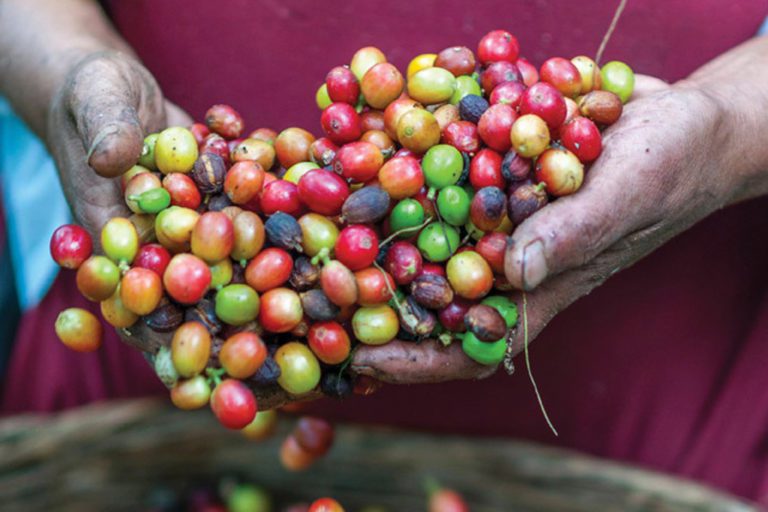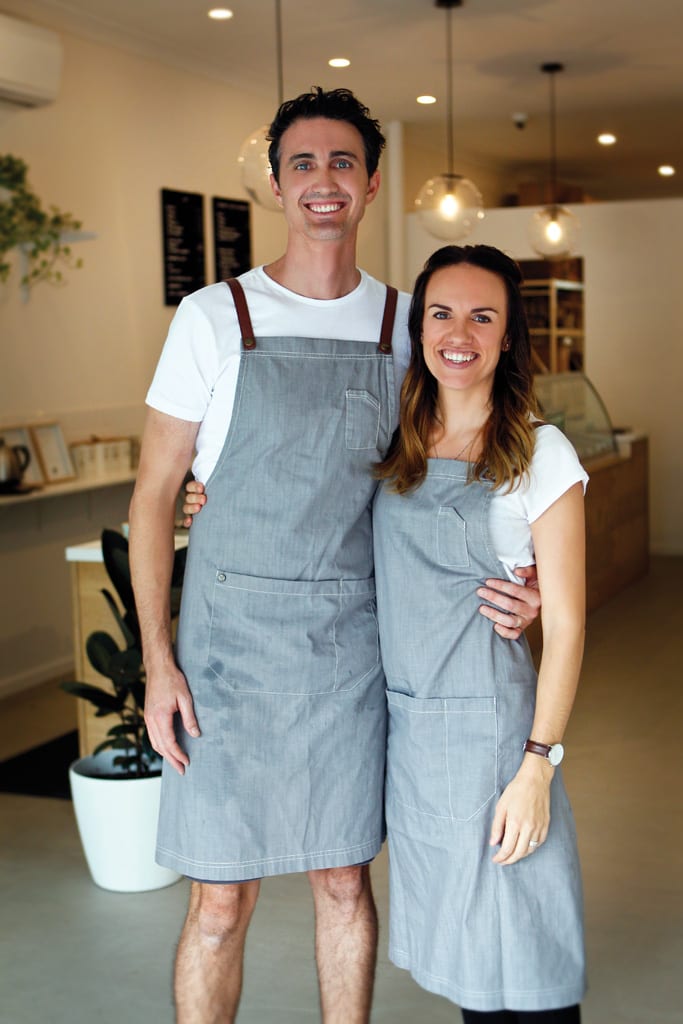COFFEE
Organic Coffee – Ethical businesses: a trend or simply a new way of doing business?

WORDS: Ben Glennon PHOTOGRAPHY Portrait - Brian Usher
JOY Organic Coffee Roasters talks ORM through the ins and outs of organic coffee — and why it’s so vital to support the growing trend of ethical business.
When we started JOY Organic Coffee, it was to make an intentional difference in the coffee industry. While travelling through Latin and Central America, we saw first-hand how the coffee industry can positively (or negatively) affect local communities.
We saw 70-year-old workers carrying 69kg of coffee on their shoulders through town to be distributed. We saw families of eight living destitute while trying to make a living wage picking coffee cherries.
We knew that we wanted to be a positive contributor to change in this industry. We do this through several avenues: philanthropic practices of giving to local and international charities, supporting fairtrade practice and, most importantly, purchasing only certified organic coffee.
Ethics in the coffee industry and beyond…
Historically, the coffee industry has been known as a ‘dirty’ industry in that its practices and history is steeped in unethical practices. Child labour, underpaid farmers, poor working conditions or unsustainable farming practices have all unfortunately been a part of coffee’s long history — in part due to the fact that coffee is the second most highly traded commodity next to oil.
Thankfully, this has changed drastically over the past few decades — largely due to increasingly educated consumers who have demanded better, but also due to coffee businesses dedicated to making change and ‘doing business’ differently.
I’ve often asked myself, are ethical businesses a trend or simply a new way of doing business? The harsh reality is that if you’re not trading ethically or buying ethically, you’re part of the problem.
With education comes the need to take action. So what can you do?
The best way we can envision is to buy local, support ethical businesses and, most importantly, to have a look at your buying practices and see what you can improve on.
This is for every area of your life. Where is your cotton grown for the clothes you buy? Who made that piece of furniture in your living room? What field workers picked your coffee cherries?
The consumer’s voice (and dollar) is the most important catalyst for change. If companies see that consumers demand better, ethical, and more sustainable products, they will deliver. Never underestimate how powerful your voice is to create change.
Why organic coffee?
We have a saying at JOY: “Better for you, the farmers, and the environment.” In fact, we like that saying so much that we’ve put it on every bag of coffee we sell. Short and sweet, here’s why organic coffee is better:
Better for you: Do you want some pesticides with your coffee? How about insecticides or fertilizers? Didn’t think so. Neither do we.
Better for the farmers: In coffee-growing regions, it’s very common to see farmers using harsh chemicals and pesticides with absolutely no safety gear and without any education or training in how to handle these toxic chemicals safely. We believe they deserve better.
Better for the environment: Surrounding communities and local environments are affected through waste water and toxic chemicals released into the air during production. In addition, organic coffee eliminates the need to clear natural forests, as it is largely shade-grown within an existing ecosystem.
Organic coffee myths
These are three of the more common myths.
It doesn’t contain caffeine
We’re not sure where this one came from! We’ve had so many people ask us if organic coffee is like ‘normal coffee — as in … does it have caffeine? Of course! We love our caffeinated beverage as much as you do! It’s the same coffee, just grown and cultivated without the use of toxic chemicals, with higher environmental standards and better farming practices. Win, win!
It’s not high quality
Couldn’t be further from the truth. Our coffee at JOY is all specialty-grade, small-batch roasted and we often have coffees with cupping scores of 90+ (that’s a significantly higher quality standard than most large chain coffees on the market).
It doesn’t make a difference to buy organic
Yes, it does. It makes a difference to you as a consumer in that your health is not compromised by the buckets of chemicals used to produce conventional coffee. It makes a difference to the farmers and workers who don’t sacrifice their health and local environments to produce our coffee beans. It makes a difference to the environment as a whole, as we remove tons of chemicals from the production cycle every year (not to mention the deforestation that takes place with non-organic farming practices).
We’d love you to drop into our Gold Coast café and roastery to try our beautiful organic coffee and decide for yourself! We love showcasing the latest organic coffees, all small-batch roasted in-house.

Ben & Patty Glennon – Joy Coffee, West Burleigh







